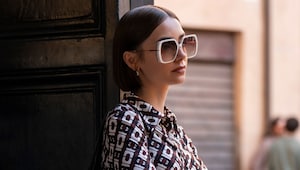Different types of smiles and their hidden meanings
Did the sun come out or did you just smile?

We all broke into a smile when Bunny told Naina in Yeh Jawaani Hai Deewani, “Tumhari smile itni dangerous hai pata hain? Agar mere pas dil hota, toh uspe pakka aa jaata” (Did you know your smile is dangerous (endearingly)? If I had a heart, it would have fallen for you) or felt a wave of warmth when Taylor Swift sang, “You’ve got a smile that could light up this whole town”. in You Belong With Me or felt goosebumps when the Bee Gees wrote, “Smile, an everlasting smile, a smile can bring you near, to me”. Smiles have an unconditional butterfly effect—that smile after your best friend hugged you tight translated into a good morning for your neighbour whom you wished as you walked past their home, and…you get the drift.
Whether they’re fake and cruelly-intended or as authentic and lovable as ever, we’re captivated by smiles. Human beings smile for a number of reasons and in different ways, and all have hidden meanings. We’re here to give you the download on the different types of smiles and the meaning behind each of them.
The reward smile or affiliative smile

The smiles that arise from positive feelings such as contentment or happiness are known as reward smiles because we use them to motivate ourselves or others around us. According to Healthline, “Reward smiles involve a lot of sensory stimuli. Muscles in the mouth and cheeks are both activated, as are muscles in the eye and brow areas. More positive input from the senses increases the good feelings and leads to better reinforcement of the behaviour.” Affiliative smiles are signs of trustworthiness, reassurance, and politeness.
The flirtatious smile
According to a study conducted by the Swiss National Science Foundation smiling makes people more attractive and can even compensate for relative unattractiveness (!). A simple smile can be a great way to let someone know that you’re interested or just to grab their attention from across the room. Some of the most common ones are keeping your lips together and lifting up the eyebrow just a little bit (think Chuck Bass) or even a side smile while bending your head down slightly.
The Duchenne smile

Think of Deepika Padukone’s smile in Om Shanti Om or Shahrukh Khan’s smile in Kuch Kuch Hota Hai—they are smiles that are ingrained in our minds forever. The Duchenne smile, also known as the smiles of genuine enjoyment and honesty is definitely our favourite kind of smile. It’s the one where your whole face seems to light up, and you create magic in every room you walk into. According to Healthline, the Duchenne smile makes you seem trustworthy, authentic, and friendly. A study conducted by the Wayne State University looked at yearbook photographs of college students and found that the women who displayed Duchenne smiles were more likely to be happily married later.
The polite smile
We’ve all made fleeting eye contact with strangers on the streets or held a door for someone and given them a quick smile before we get on with our otherwise hectic schedules. And while we put on a polite smile on several occasions both good and mellow, it might be interesting to know that the smile is simply seen through the movements of your mouth, but not the eyes—something that can be very telling about whether you’ve had a good day or not and more. Polite smiles are just that—to be kind yet maintain distance from unknown people.
Dominance smile
Like we said, not all smiles will make you leap with joy. Sometimes smiles can be conniving and manipulative. One such type is the dominance smile, which people show when they want to show superiority or that they are more powerful than a few others. Here’s one of the most telling signs of a smile of dominance: it’s often asymmetrical (think of Cruella de vil or the Joker from Batman). When you see such a smile, you may feel hesitant to trust them or even approach them. Similar to this, is the lying smile, which are extremely difficult to spot (unless you’re Sherlock Holmes).
more from Life

Why going offline is suddenly Gen Z’s favourite flex

Four celeb-inspired salad recipes are what January lunches should be made of

If you’re celebrating this season, you’ll want to do it at Shangri-La Eros New Delhi

What does it mean to be queer after 'Heated Rivalry' ended?

Scents that make staying in feel like a winter wonderland

'Bridgerton' season 4 trailer: Benedict and Sophie are ready to serve a Cinderella-esque romance

It's the Year of the Horse and here's what it means for you

If a man wears this, date him….

Vanishing acts or forever energy? Here’s how you can enter the new year with a happy heart

This year’s beauty trends, written all over our faces
